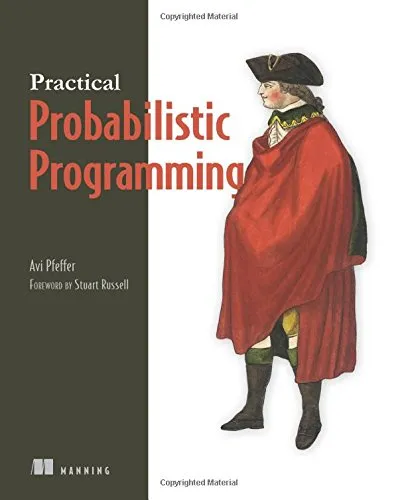Consciousness and the Brain: Deciphering How the Brain Codes Our Thoughts
4.5
بر اساس نظر کاربران

شما میتونید سوالاتتون در باره کتاب رو از هوش مصنوعیش بعد از ورود بپرسید
هر دانلود یا پرسش از هوش مصنوعی 2 امتیاز لازم دارد، برای بدست آوردن امتیاز رایگان، به صفحه ی راهنمای امتیازات سر بزنید و یک سری کار ارزشمند انجام بدینکتاب های مرتبط:
معرفی کامل کتاب 'Consciousness and the Brain: Deciphering How the Brain Codes Our Thoughts'
کتاب 'Consciousness and the Brain: Deciphering How the Brain Codes Our Thoughts' اثری است از 'Stanislas Dehaene' که به موضوع پیچیدۀ آگاهی و چگونگی پردازش آن توسط مغز میپردازد. این کتاب به بررسی نحوهای که مغز انسان افکار پیچیده را کدگذاری میکند، میپردازد و به دنبال یافتن راه حلهایی برای یکی از جذابترین معماهای علمی در دوران ما است.
خلاصۀ کامل کتاب
این کتاب سفری علمی و عمیق به دنیای ناشناختۀ آگاهی انسانی است. نویسنده با ترکیب نتایج تحقیقات علمی و فناوریهای نوین، به بررسی مکانیزمهایی میپردازد که مغز از طریق آنها آگاهی را ایجاد میکند. او در این اثر به چگونگی جداسازی و تفسیر فعالیتهای مغزی مختلف در حالتهای متنوع آگاهی میپردازد و برای خوانندگان توضیح میدهد که چگونه مغز توانایی ایجاد تجربیات ذهنی را دارد. با انجام آزمایشات متعدد در زمینۀ علوم اعصاب و استفاده از روشهای مدرن مانند تصویرسازی مغزی، Dehaene نحوه تعامل و همکاری نواحی مختلف مغز را نشان میدهد که منجر به پیدایش آگاهی میشود.
نکات کلیدی
- آگاهی نتیجه تعامل پیچیدۀ نواحی مختلف مغز و شبکههای عصبی است.
- پیشرفتهای تکنولوژیک مانند fMRI و EEG به درک بهتری از فعالیتهای آگاهانه انجامیدهاند.
- آگاهی شامل سه مقدار کلیدی است: اطلاعات، تفاهم و تعهد.
- Frontal lobe و Temporal lobe دو بخشی از مغز هستند که در ایجاد آگاهی نقش مهمی دارند.
جملات معروف از کتاب
“Consciousness is the property of having information entering the brain and reaching the Global Workspace.”
“The more we understand the brain, the more we realize that any cognition without consciousness is incomplete.”
چرا این کتاب اهمیت دارد
این کتاب به دنبال بازکردن دریچههای جدیدی به روی علم آگاهی است. با توضیح چگونگی تبدیل فعالیتهای مغزی به تجربیات ذهنی، 'Stanislas Dehaene' نقشی کلیدی در پیشبرد علم شناختی ایفا میکند. مطالعۀ این کتاب به دانشمندان، دانشجویان و خوانندگان علاقهمند این فرصت را میدهد تا با پیشرفتهای اخیر در زمینه علوم اعصاب آشنا شوند و درک بهتری از نقش مغز در ایجاد آگاهی به دست آورند.
Introduction
Welcome to the exploration of one of neuroscience's most profound and enduring mysteries: consciousness. In "Consciousness and the Brain: Deciphering How the Brain Codes Our Thoughts," I, Stanislas Dehaene, shed light on the intricate workings of the human brain and how it produces our rich tapestry of thoughts and conscious experiences. This book seeks to unravel the complexities of consciousness through scientific investigation, drawing from cutting-edge research in neuroscience, cognitive psychology, and brain imaging.
Detailed Summary of the Book
The book delves into the mechanics of how the brain becomes aware, striving to answer questions that have puzzled philosophers and scientists for centuries. I describe the ways in which the brain processes unconscious data and what mechanisms are involved in bringing certain pieces of this data into the realm of consciousness. Across several chapters, I elucidate how conscious access works by exploring neural signatures and the brain's global workspace theory. Using advanced brain imaging techniques, I demonstrate that conscious thoughts are not localized to one region but involve complex interactions spanning across multiple areas of the brain.
Consciousness is depicted as an outcome of information being broadcasted to a global workspace, where it becomes available to a variety of cognitive processes. The book provides substantial evidence for this model by showcasing experiments that investigate phenomena such as subliminal messaging, illusions, and decision-making processes. These insights reveal the extent of unconscious processing and its critical role in cognition. Ultimately, the narrative builds towards a comprehensive scientific theory of consciousness that aims to demystify this age-old enigma.
Key Takeaways
- Consciousness is not an all-or-nothing state but involves varying degrees and layers of awareness.
- The Global Neuronal Workspace Theory provides a plausible framework for understanding the neural basis of consciousness.
- Our conscious experience is the result of the brain's ability to prioritize and broadcast information across distributed networks.
- Unconscious processes significantly influence our thoughts and behaviors, contributing to the formation of conscious awareness.
Famous Quotes from the Book
"Understanding consciousness is the ultimate intellectual challenge, akin to deciphering the code of life itself."
"Our brains process a vast amount of information unconsciously, yet only a small fraction reaches the level of conscious perception."
Why This Book Matters
"Consciousness and the Brain" is not just a scientific exploration, but a significant contribution to our understanding of what it means to be human. By bridging the gap between the subjective experience of consciousness and objective scientific methodology, this book paves the way for new inquiries in psychology, artificial intelligence, and neurology. It emphasizes the importance of a multidisciplinary approach in tackling philosophical questions with empirical data.
By decoding the brain's language of thought, the book informs not only scientific communities but also enriches the fields of education, technology, and mental health. Understanding how we become aware can lead to breakthroughs in treating disorders of consciousness and improving cognitive functions, making it an essential read for anyone interested in the future of human cognition. This groundbreaking work invites readers to reflect on their consciousness and the intricate processes underlying our daily experiences.
دانلود رایگان مستقیم
شما میتونید سوالاتتون در باره کتاب رو از هوش مصنوعیش بعد از ورود بپرسید
دسترسی به کتابها از طریق پلتفرمهای قانونی و کتابخانههای عمومی نه تنها از حقوق نویسندگان و ناشران حمایت میکند، بلکه به پایداری فرهنگ کتابخوانی نیز کمک میرساند. پیش از دانلود، لحظهای به بررسی این گزینهها فکر کنید.
این کتاب رو در پلتفرم های دیگه ببینید
WorldCat به شما کمک میکنه تا کتاب ها رو در کتابخانه های سراسر دنیا پیدا کنید
امتیازها، نظرات تخصصی و صحبت ها درباره کتاب را در Goodreads ببینید
کتابهای کمیاب یا دست دوم را در AbeBooks پیدا کنید و بخرید
1486
بازدید4.5
امتیاز0
نظر98%
رضایتنظرات:
4.5
بر اساس 0 نظر کاربران
Questions & Answers
Ask questions about this book or help others by answering
No questions yet. Be the first to ask!
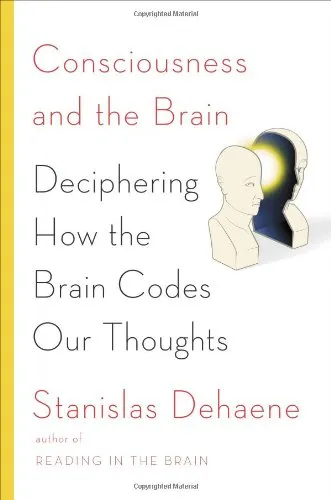


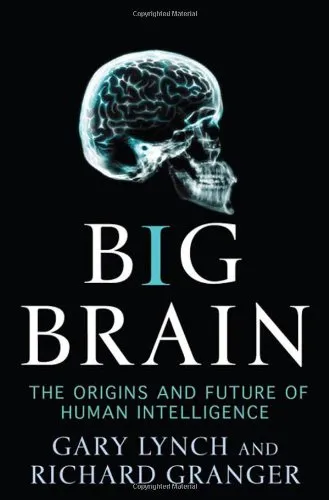

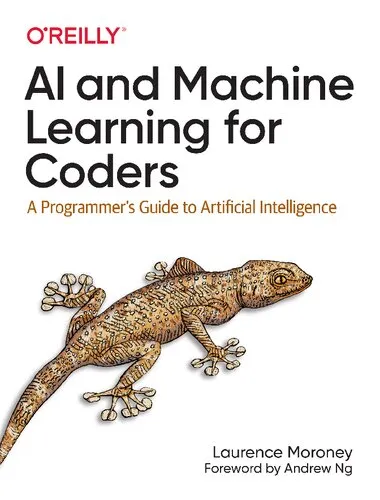
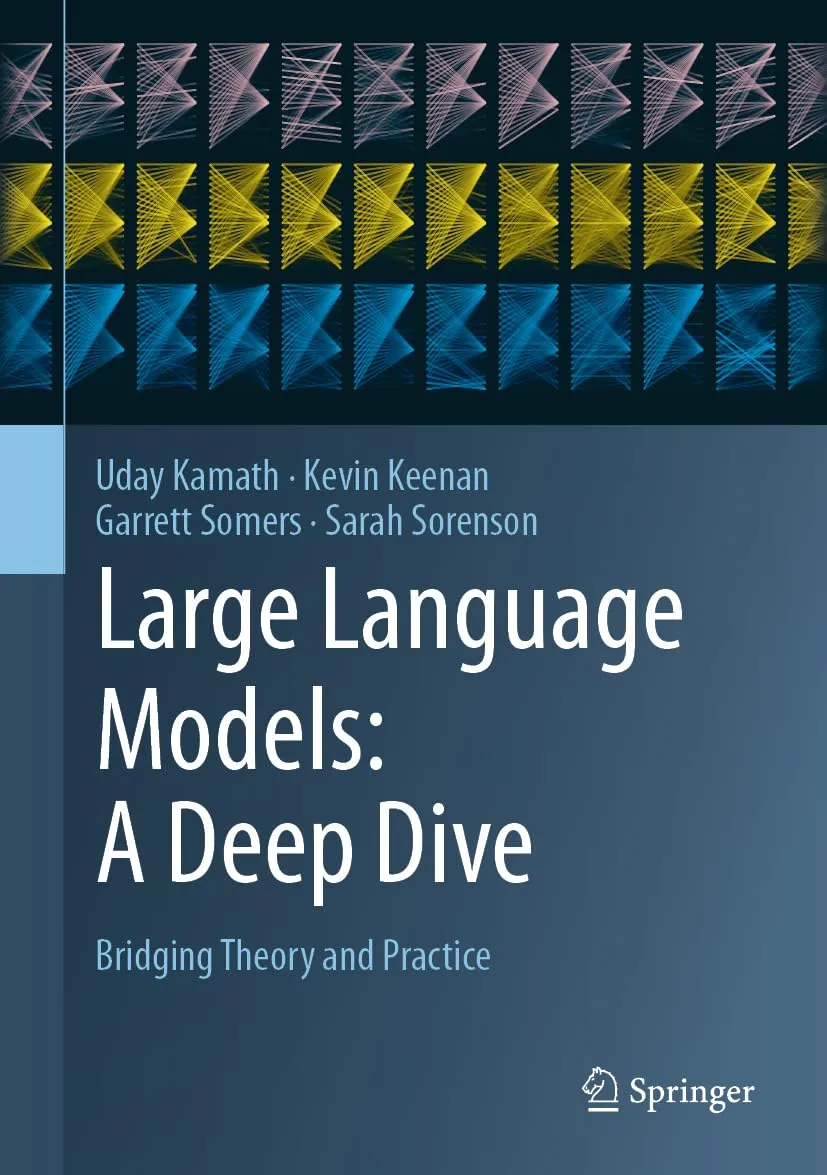

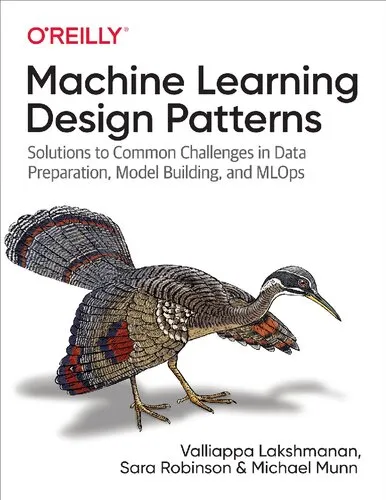


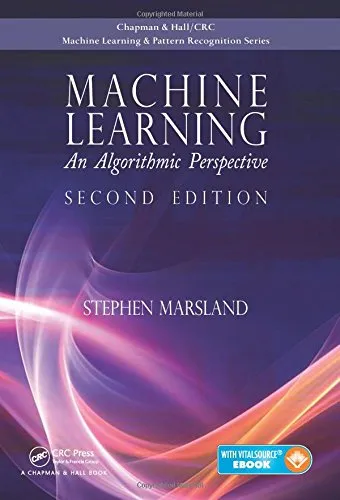
![Foundations of Machine Learning, Second Edition [2nd Ed] (Instructor Res. n. 1 of 3, Solution Manual, Solutions)](https://s3.refhub.ir/images/thumb/Foundations_of_Machine_Learning__Second_Editi_21039.webp)
